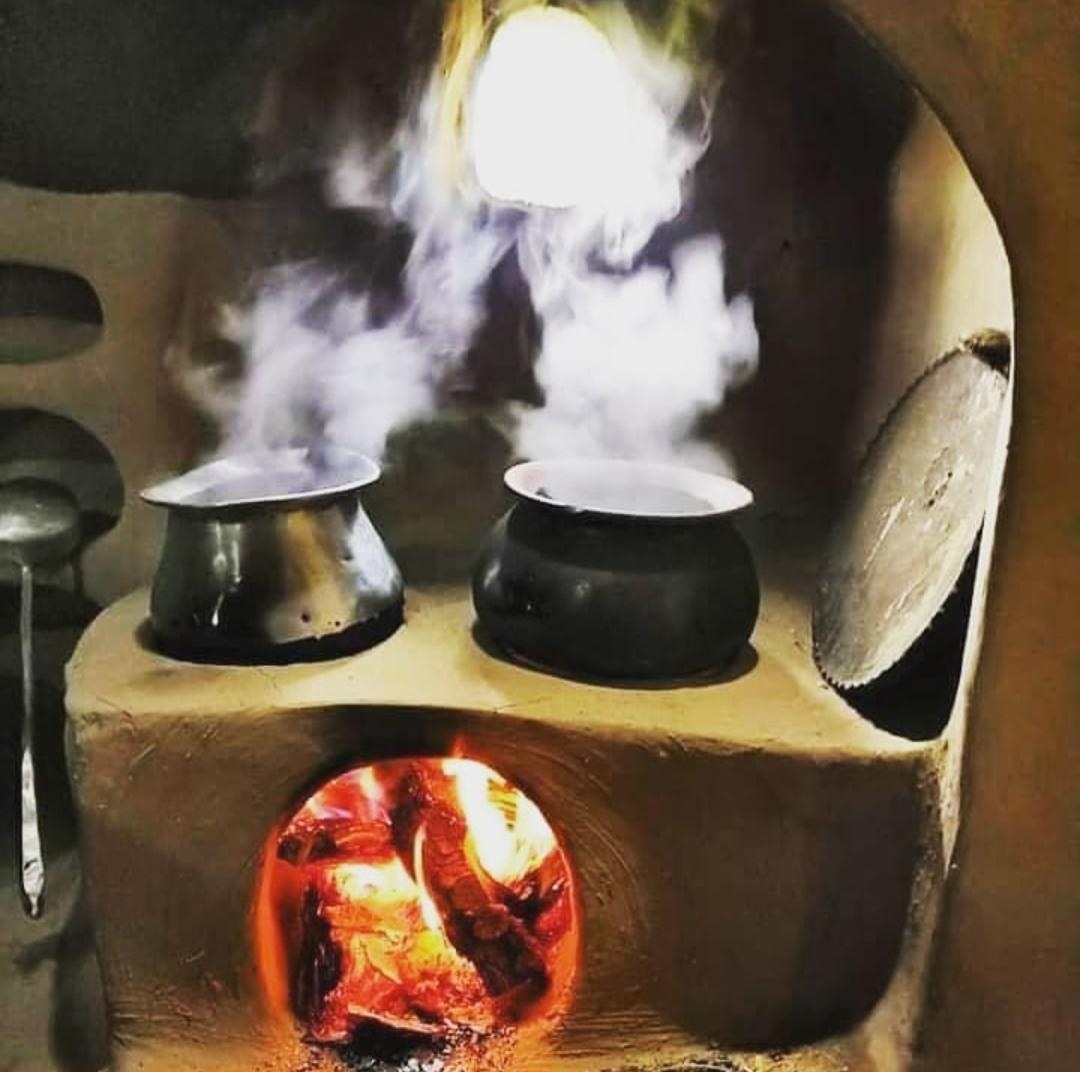By : Umar Raina
Once a part of every household in Kashmir valley, ‘Daan,’ a traditional clay stove known for its exceptional cooking qualities still holds a special place in the kitchens of some villages in Kashmir, particularly in the Ganderbal district. While modern cooking gadgets have become the norm in many households, the ‘Daan’ has managed to endure in certain communities, offering a unique culinary experience that residents hold dear to their lives.
The Decline of the ‘Daan’
Over the past couple of decades, the use of the ‘Daan’ has gradually declined across the Kashmir Valley, mainly due to the widespread construction of modern houses equipped with electronic cooking appliances. However, in villages like Gund, Kulan, Gagangir, Surfraw, and neighboring areas, this traditional stove remains an indispensable part of daily life.
‘Daan’ as a Culinary Blessing
Locals in these villages speak passionately about the ‘Daan,’ considering it a “blessing.” They emphasize that the taste and quality of food cooked on the ‘Daan’ cannot be replicated by modern electronic rice cookers or stoves. Women in these areas particularly cherish this centuries-old cooking method, even though it involves a labor-intensive process of procuring fuel, usually wood and tree branches, either purchased or collected from nearby forests.
Rafiqa Begum, a resident of Gund, highlights the cultural significance of the ‘Daan’ in their lifestyle, stating, “Daan has its own importance and many benefits. It holds a special significance in our lifestyle. We cannot imagine our life without it.” It’s worth noting that in some remote areas, the ‘Daan’ is referred to as ‘Daambur.’
Beyond Culinary Artistry: ‘Daan’ as a Source of Warmth
The ‘Daan’ serves a dual purpose, not only as a cooking apparatus but also as a source of warmth, especially during the harsh winter season. Raja Begum points out, “Apart from cooking, the ‘Daan’ keeps our room warm, especially during the chilly winter season.” This unique feature adds to the ‘Daan’s’ allure, making it an essential part of daily life in these regions.
The Art of Cooking with Earthen Pots
One of the key characteristics of cooking on the ‘Daan’ is the use of earthen pots, which naturally enhance the flavor of the dishes. Local residents believe that food cooked in these pots is nutrient-rich because the ‘Daan’ helps maintain the moisture and aroma of the cooked food. This traditional method of cooking, rooted in the use of earthenware, has been passed down through generations, creating a unique and cherished culinary tradition.
Health Benefits of ‘Daan’ Cooking
Health experts have recognized the health benefits of food cooked on the ‘Daan.’ They point out that cooking on this traditional stove is healthy in vseveral ways. The only precaution necessary is to use cow dung cakes instead of wood or coal, as the latter two can have adverse effects on the respiratory system. This aspect highlights the harmony between traditional practices and modern health consciousness.
Guardian of the Traditional Daan
Notably, Haseena, a skilled artisan, has dedicated herself to preserving the ‘Daan’ tradition. She is an expert in making ‘Daan’ and generously offers her services free of charge. Her passion for this cultural relic underscores the commitment of individuals in these communities to sustain their heritage.
In an era dominated by electronic appliances and modern cooking techniques, the ‘Daan’ has remained a symbol of tradition and resilience in certain villages of Kashmir. Its unique culinary qualities, the ability to provide warmth, and the health benefits it offers ensure that it remains cherished and indispensable in the daily lives of the people. The ‘Daan’ represents a profound connection between the past and the present, where tradition and culture continue to flourish in the heart of modernity.





